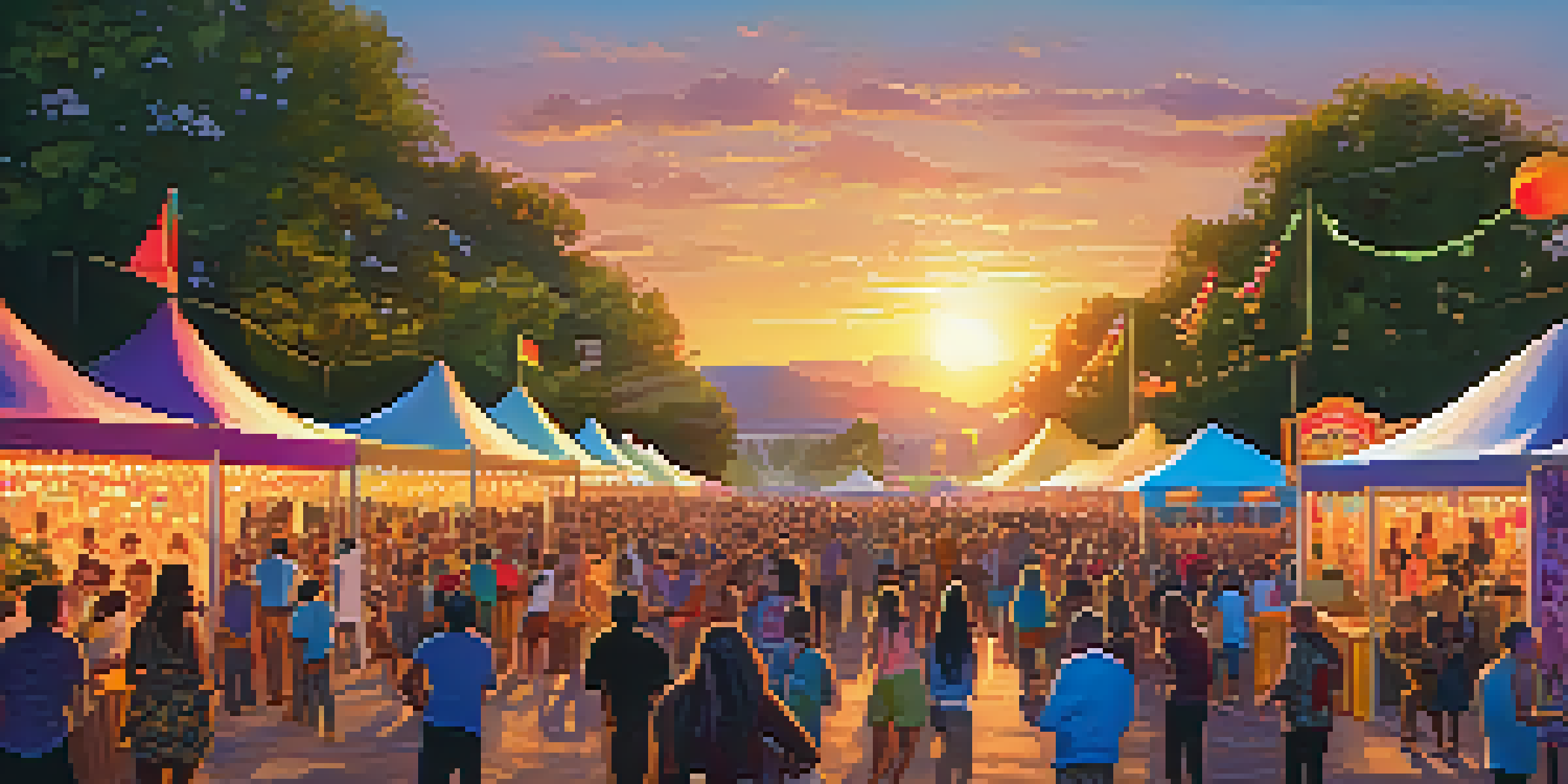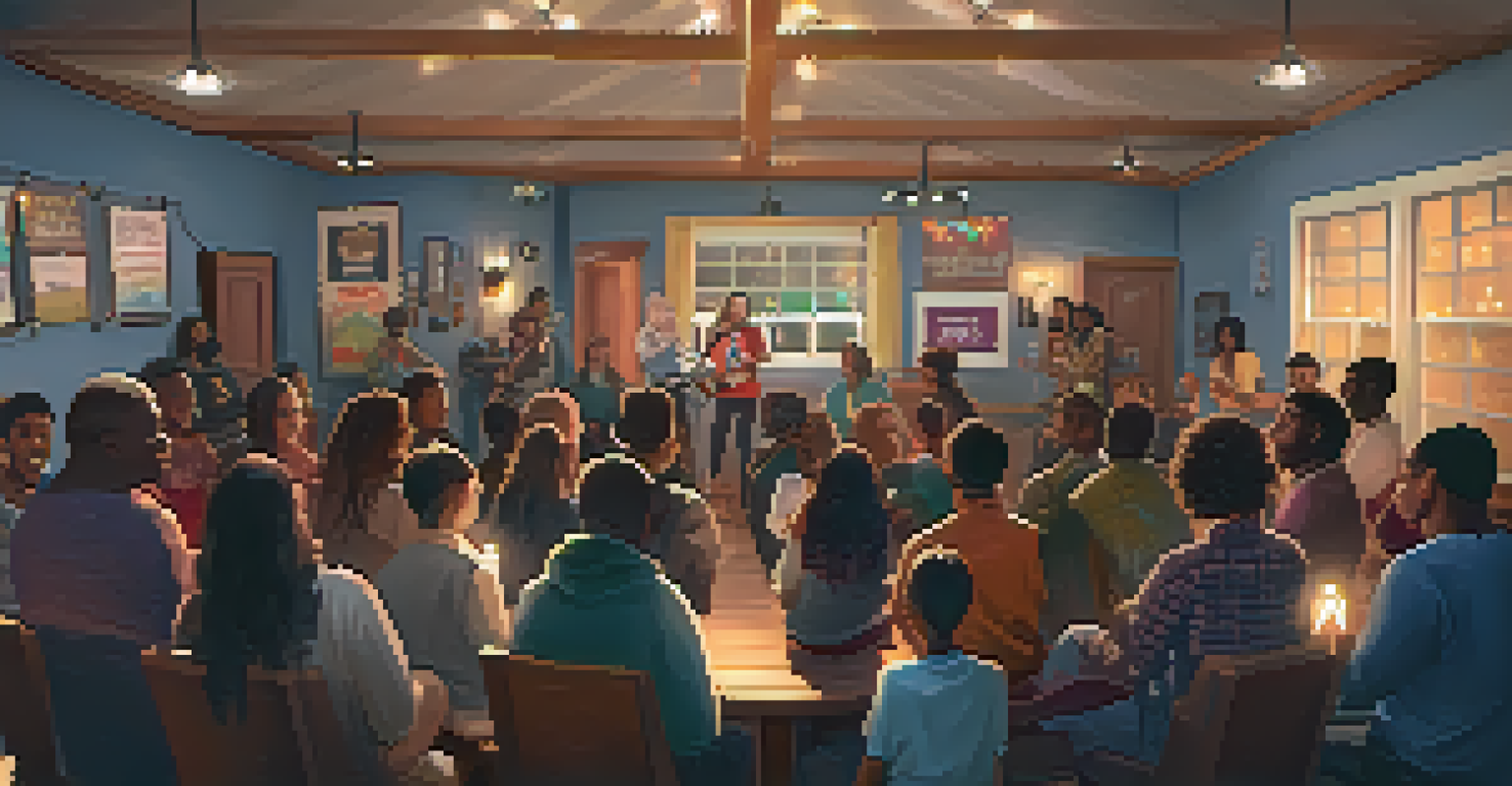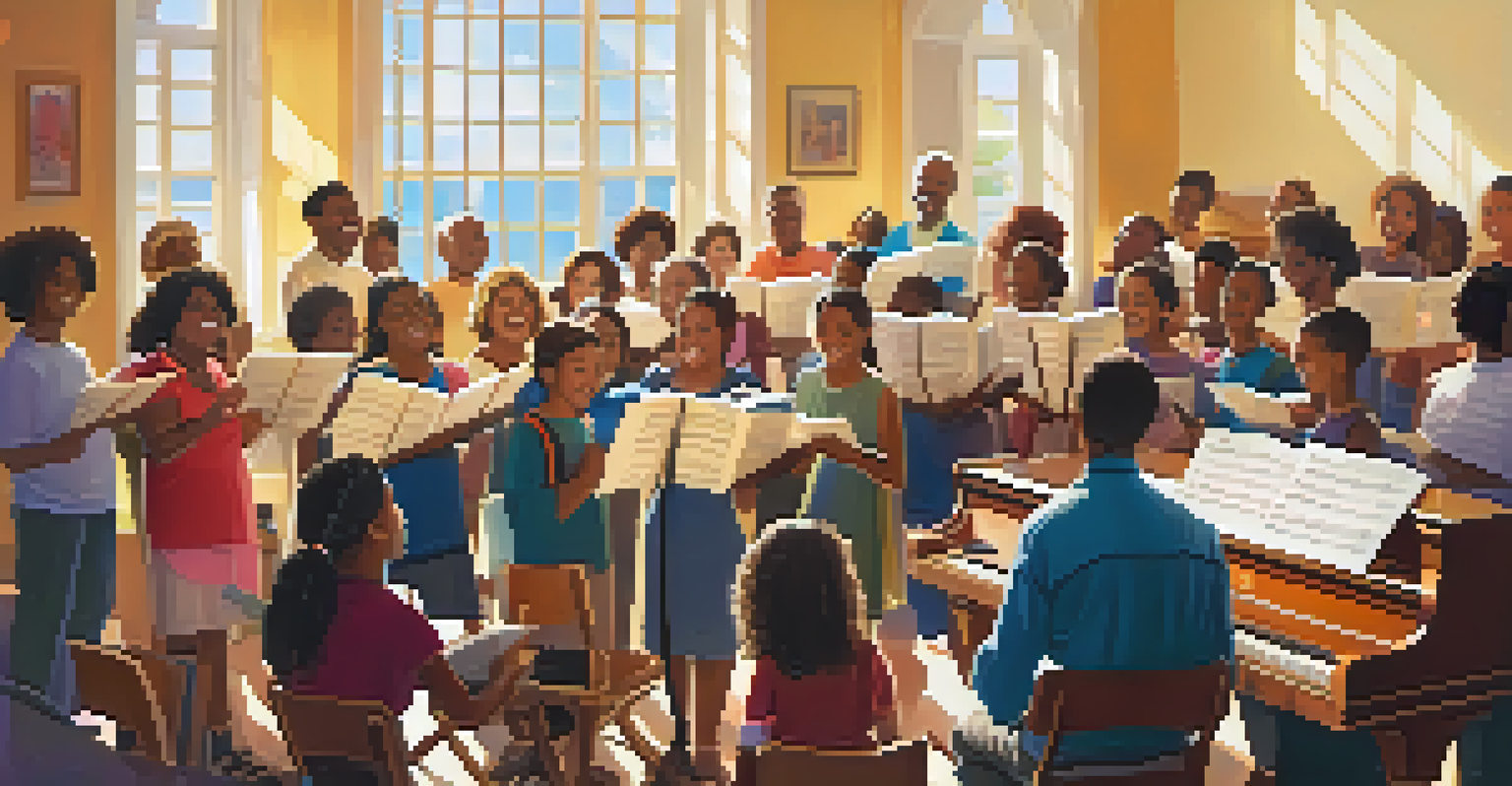How Music Promotes Inclusivity in Local Communities

Music as a Universal Language for Connection
Music has a unique ability to transcend barriers, uniting people from all walks of life. It speaks to emotions and experiences that many can relate to, regardless of their background. When communities come together to share music, they create a shared space where differences fade away, and connections blossom.
Music can change the world because it can change people.
For instance, a local festival that features various music genres invites participation from different cultural groups. This not only showcases diverse musical styles but also encourages attendees to learn about each other’s backgrounds. Such interactions can foster friendships and understanding that might not happen otherwise.
Ultimately, music acts as a bridge, creating an environment where everyone feels welcome to join in. Whether it’s through a communal sing-along or a dance circle, the shared experience of music can break down social barriers and build a sense of belonging.
Creating Safe Spaces for Expression and Belonging
Local music events often provide safe spaces for individuals to express themselves freely. These environments allow participants to showcase their talents without fear of judgment, creating an atmosphere of acceptance. When people feel safe to express their creativity, it encourages others to do the same.

Consider open mic nights at community centers, where anyone can take the stage. These events invite diverse voices to share their stories through music, poetry, or performance. The result is a rich tapestry of shared experiences, promoting inclusivity and understanding.
Music Unites Diverse Communities
Music transcends barriers, fostering connections among people from various backgrounds through shared experiences.
By fostering these safe spaces, music helps individuals feel valued and heard. This not only boosts their confidence but also strengthens community bonds, as people come to appreciate the diverse perspectives around them.
Collaborative Music Projects Encourage Teamwork
Collaborative music projects, such as workshops or community choirs, promote teamwork and inclusivity. When individuals come together to create music, they learn to communicate, compromise, and celebrate each other's contributions. This collaboration enhances social skills and builds lasting relationships within the community.
Where words fail, music speaks.
For example, a community choir that welcomes singers of all skill levels encourages participants to harmonize their differences. The shared goal of creating beautiful music fosters unity and camaraderie, bridging gaps that may exist due to cultural or social divides.
Through these collaborative efforts, participants not only develop musical skills but also cultivate a sense of togetherness. The experience of working toward a common goal can transform a group of strangers into a supportive community.
Music Events as Platforms for Cultural Exchange
Music events serve as dynamic platforms for cultural exchange, enriching communities with diverse traditions. By featuring artists from various backgrounds, these events create opportunities for attendees to experience new sounds, rhythms, and cultural narratives. This exposure fosters appreciation and respect for different cultures.
Take, for instance, an annual cultural festival that highlights traditional music from different countries. Attendees can immerse themselves in new cultures, learn about their histories, and even try their hand at traditional dances. This interactive experience encourages dialogue and understanding among diverse community members.
Safe Spaces Encourage Expression
Local music events create welcoming environments where individuals feel free to express their creativity without judgment.
As people engage with different cultures through music, they begin to see the beauty in diversity. This not only enhances community cohesion but also promotes a spirit of inclusivity that celebrates what makes each culture unique.
Music Education Programs Promote Inclusivity
Music education programs in local schools and communities play a crucial role in promoting inclusivity. By providing access to music lessons and instruments, these programs ensure that all children, regardless of their background, can explore their musical interests. This opens doors for creativity and collaboration among diverse groups of kids.
For instance, a community music program offering free lessons to underprivileged children encourages participation from various backgrounds. As kids learn to play together, they develop friendships and a sense of belonging that can extend beyond the music room.
By fostering a love for music at an early age, these educational initiatives help create a more inclusive community. They instill values of teamwork and respect for one another, shaping a generation that appreciates diversity.
Live Performances Foster Community Engagement
Live music performances can energize a community and foster greater engagement among its members. These events not only provide entertainment but also invite local residents to come together, share experiences, and build connections. The joy of live music creates an inclusive atmosphere where everyone feels invited to join in.
Consider a weekly concert series held in a park, where residents of all ages gather to enjoy performances. Such events often attract diverse audiences, allowing people from different backgrounds to meet and interact. They create a shared experience that reinforces community ties.
Collaborative Projects Build Bonds
Collaborative music initiatives promote teamwork and inclusivity, transforming strangers into a supportive community.
Through the magic of live music, communities can strengthen their bonds and cultivate a sense of belonging. These gatherings encourage participation, making everyone feel like an integral part of the community fabric.
The Role of Music in Healing and Support
Music has a profound impact on mental health and well-being, often serving as a tool for healing in communities. Support groups and wellness programs frequently incorporate music therapy, helping individuals process emotions and connect with others. This shared journey fosters inclusivity, as participants realize they are not alone in their struggles.
For example, a community organization might offer music therapy sessions for individuals dealing with grief or trauma. These sessions create a safe environment for participants to express their feelings through music, forging connections based on shared experiences and healing.

By recognizing music's therapeutic benefits, communities can create inclusive spaces where individuals can find support and understanding. This collective healing process reinforces the idea that everyone deserves compassion and care, regardless of their background.